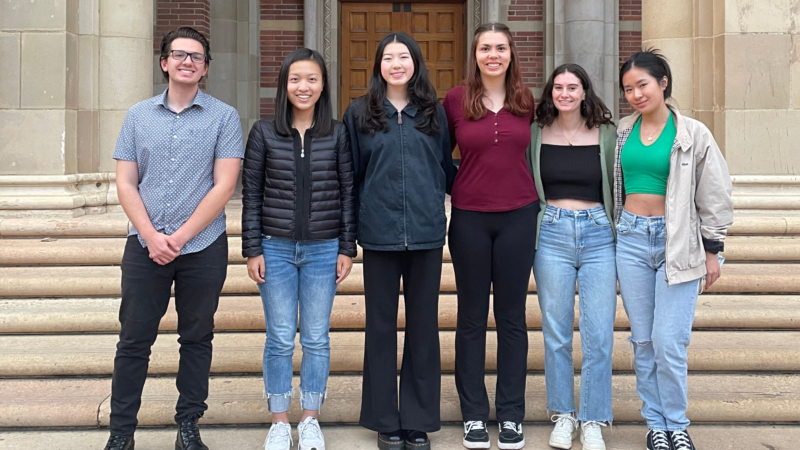The 2023 Energy Team will work to optimize energy use in UCLA facilities on the basis of the occupants’ schedules to produce savings for Facilities Management. To accomplish this, we will analyze retrospective energy data, collect occupancy data, and compare the energy usage and occupancy across facilities. Finally, we will look at the financial data and possible monetary savings from integrating the proposed new schedule.
UCLA has an ambitious goal to attain carbon neutrality by 2025. To work towards carbon neutrality, UCLA has also established specific policies for buildings and facilities, following closely with California Building Code (CBC) energy-efficiency standards. Since energy usage in on-campus buildings and facilities is the largest contributor to Scope 1 and Scope 2 emissions, it is important to understand patterns in energy usage and attain the goals and policies set by UCLA.
The 2022 SAR Energy Team analyzed energy savings based on temperature adjustment of lounge rooms by conducting a comparative analysis between Rieber and Centennial Hall. While impactful, their study did not analyze energy waste based on occupancy, but instead on temperature set point. Nor is there previous work by UCLA facilities to gauge energy efficiency using occupancy rates. Given that outside studies have shown that buildings tend to waste energy when there are low occupancy levels, the 2023 SAR Energy Team seeks to understand how much this is, and how it can be improved. We hope to collect building energy data through surveys, interviews, fieldwork, and other methods, and similarly make it accessible to all UCLA stakeholders to inform future energy conservation and sustainability efforts.
Stakeholder: Spencer Middleton, UCLA Facilities Management Energy Analyst
Team Leaders: Luis Garcia Chavez, Grace Salvestrin
Team Members: Kaitlyn Cui, Jasmine Nguyen, Brianna Pearson, Alexis Zhang

